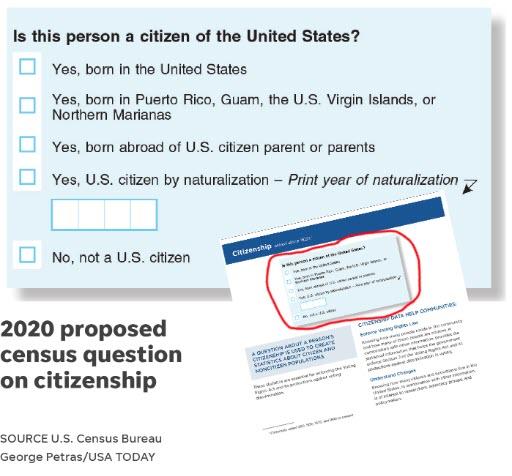In what will no doubt come as a shock to many, there are people on Twitter who comment on policy matters, legal opinions, and news events without reading relevant materials or knowing much about the law. Such was the case in response to my assertion on Twitter that the President should, following the recent Supreme Court opinion in Department of Commerce v. New York regarding the census, continue with plans to print the census documents with a citizenship question and state publicly his simple explanation for doing so. Some on Twitter exploded with claims of my breaking my oath, ignoring the Constitution, and being a Trump “sycophant.” These claims are absurd, but the norm for Twitter, of course.
To be clear, I believe the President asking the citizenship question is not only correct, but it is the only thing to do if one believes in the Constitution and the rule of law. The Constitution requires that we conduct a census. We conduct the census every 10 years. It requires counting “persons,” but we have throughout our history counted persons and also asked other important questions, including citizenship. It is my belief we should ask that question, and according to reliable polling, 88% of Republicans, 67% of all Americans support the question being asked. Importantly, is the belief of the President and his administration that we should include a question asking about citizenship.
Doing so is important for numerous reasons. Getting an accurate counting of persons, and citizens, is important for re-districting, for allocation of federal dollars, for setting up voting locations, for making decisions about the impact of illegal immigration on American communities, and for, yes, administering the laws in accordance with the Voting Rights Act, among other reasons. It is also, arguably, constitutionally required to ask for citizenship. Yes, required.
If one only reads the census portion of the Constitution, it references counting “persons.” Fair enough, but there is no restriction on counting citizens, too. Importantly, though, if one reads section 2 of the 14th Amendment, you find that it, combined with the later passed 19th and 26th Amendments, creates a requirement that we know the total number of voting-age “citizens” in each state. This provision was to ensure enforcement of voting rights, and if you do not have citizenship data by state, you cannot enforce that section of the Constitution.Read the rest from Chip Roy HERE.
If you like what you see, please "Like" us on Facebook either here or here. Please follow us on Twitter here.



No comments:
Post a Comment